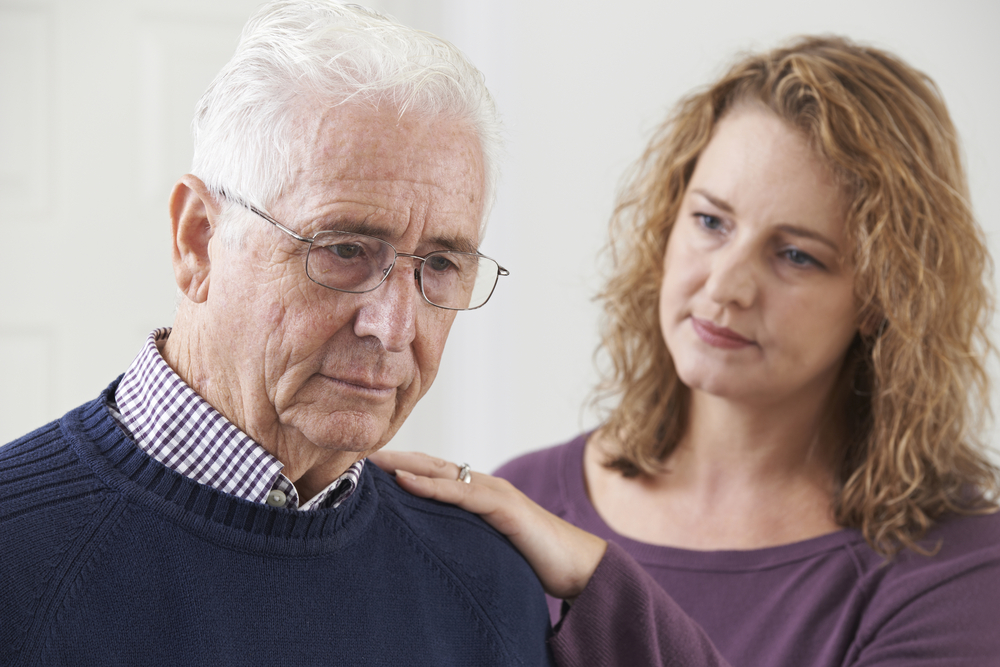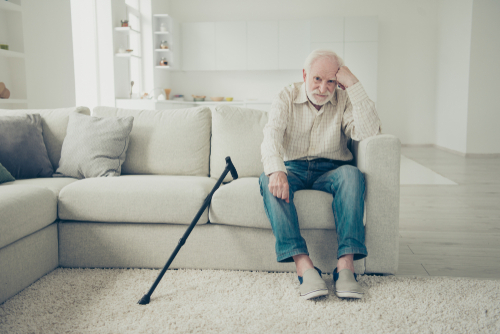Why Stress is Harmful to Bone Health

You probably know that physical stress (falls, chronic strenuous exercise, and inflammatory foods) can cause bone loss. But did you know that mental stress can have a similar effect? Yes, a person’s state of mind can wear down their bones too. In fact, recent research shows high stress levels influence bone biology… eventually leading to osteoporosis and increased fracture risk.
The Link Between Mental Stress and Bone Health
So what’s the trigger for this surprising reality? The hormone cortisol. Cortisol is produced by cholesterol from your adrenal glands. And while cortisol naturally occurs in your body with “positive” things like exercise and waking up in the morning, it also occurs thanks to daily stresses. In fact, cortisol helps turn on the body’s “fight-or-flight” response in highly stressful situations. While that in itself isn’t a bad thing, chronic stress invites inflammation into the body. And with increased inflammation comes increased cortisol levels, which can wreak havoc on bone health. Here’s how: First, cortisol increases bone resorption. That is, bone density decreases because your body creates osteoclasts — bone-resorbing cells — in greater amounts. Cortisol also blocks calcium from entering your bones. The result? Your body isn’t as efficient at absorbing calcium! And without the right building blocks to maintain healthy bones, your bone density decreases over time. What’s more, elevated cortisol levels block your osteoblasts — bone-building cells — from creating new bone. In effect, this stunts bone formation, leading to weaker bones. Can you see how the more stressed you feel, the more harm you may do to your bones? All this is good to know, but I’m sure you’d also like to know how to minimize these stress side-effects, right? So, here are three ways to “de-stress” each day. Encourage your loved ones to use them and use them yourself! You’ll all feel a big difference. (They work for far more than just bone health too.)
Three Ways to De-Stress
#1 Healthy Eating – The stress we discussed above causes oxidative stress in the body. Without getting too scientific, this simply means there are lots of free radicals floating around your body. These free radicals oxidize your cells. When anything oxidizes — not just in human biology — it means it’s worn down from its natural state. So what can you use to combat oxidation? Antioxidants! Antioxidants are crucial for a normal immune response and to maintain your health. You can’t have too many of them since they combat free radicals (and thus oxidative stress) in your body. Here’s a list of a few easy, delicious antioxidants to incorporate in your diet:
- Many berries like blueberries, cranberries, and goji berries
- Nuts like pecans, walnuts, and almonds
- Spices like oregano, cinnamon, and turmeric
- A variety of other foods like artichokes, dark chocolate, and fish oil
# 2 Laughing – This one’s pretty self-explanatory. An enjoyable bout of laughter produces the hormone serotonin, a neurotransmitter that can improve your mood. These “natural high” endorphins rush through your brain — allowing you to de-stress. Think about it… during and right after a good laugh, amusing experience, or fun… is stress even on your mind? So next time you’re feeling the pressure, try cracking a joke! A little laughter can go a long way to relieving pent up stress.
#3 Sleep – This is another simple one, but don’t ignore it. Your body craves sleep and even if you’re one of those people who can “function” off 3-4 hours a night, you’re still depriving yourself of important rest. The National Sleep Foundation released a comprehensive study run by a cross-section of medical experts. Their research found that adults up to 64 years old should get 7-9 hours per night of restful sleep. Those 65+ need 7-8 hours nightly. So even if you feel fine with less hours, sleep deprivation could still be affecting your stress levels. And that stress could be taking a toll on much more than your bone health! But sometimes it can be difficult to get to sleep. So what can you do? Here are four natural sleep aids to help you get a better night’s rest:
- Aromatherapy – Studies show that essential oils can help reduce stress and increase relaxation which leads to a more restful sleep.
- Dietary choices – Certain foods can actually promote better sleep such as tart cherry juice, milk, and brown rice.
- Sleep hygiene – Sleep hygiene refers to creating the optimal environment for rest by turning off any bright lights (this includes electronic screens!), adjusting the temperature in your bedroom, and using a white noise machine if you desire.
- Calcium – Studies show that calcium helps regulate your sleep cycle. This means if you have low calcium levels, you may wake up a few hours after falling asleep. So if you have trouble sleeping, a natural calcium supplement may help you achieve better rest.
If you, your elderly companion or your loved one is stressed, try one or more of these natural de-stressors. Remember, mental stress isn’t just harmful to your state of mind. It can also wreak havoc on bone health which is a big concern — especially for older adults.So use these tips in good health!And if you have a favorite way to de-stress, we’d love to hear about it. Please share with us in the comments below.
About the Writer
Dean Neuls is the Co-Founder and CEO of AlgaeCal. He is a natural health author and student of bone health science who is passionate about helping people & bettering lives.
Subscribe
Date: August 26, 2019


